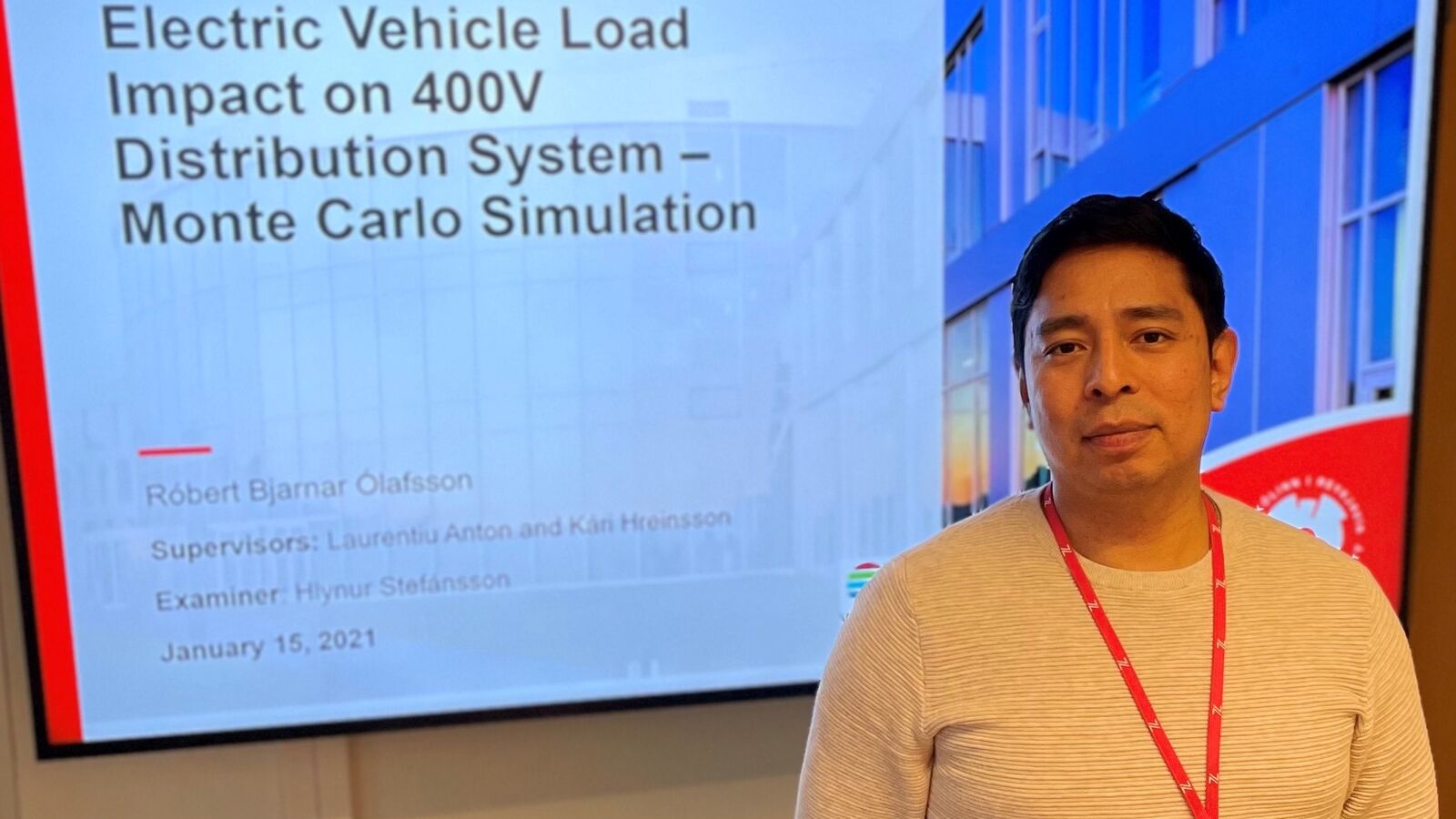MSc Thesis: Electric Vehicle Load Impact on 400 V Distribution System – Monte Carlo Simulation
REYKJAVIK, January 15 - MSc in Electric Power Engineering candidate, Róbert Bjarnar Ólafsson, successfully defended his master's thesis where he researched the topic of Electric Vehicle Load Impact on 400 V Distribution Systems with Monte Carlo Simulation. Róbert's work was supervised by Laurentiu Anton from Reykjavik University and Kári Hreinsson from Veitur.
 Róbert began by illustrating how the use of electric vehicles (EV) and plug-in hybrid vehicles is on the rise as the Icelandic government implements their climate action plans per the Paris Agreement pledge. The energy transition of the transportation system has been identified as one of the primary methods to achieve the targets of the Paris Agreement. The increase of EV sales in Iceland is expanding rapidly as the Icelandic government is incentivising consumers to choose clean energy vehicles by offering subsidies.
Róbert began by illustrating how the use of electric vehicles (EV) and plug-in hybrid vehicles is on the rise as the Icelandic government implements their climate action plans per the Paris Agreement pledge. The energy transition of the transportation system has been identified as one of the primary methods to achieve the targets of the Paris Agreement. The increase of EV sales in Iceland is expanding rapidly as the Icelandic government is incentivising consumers to choose clean energy vehicles by offering subsidies.
Moving to the core of his thesis work, Róbert simulated and analysed the impact of an added EV charging load on one specific distribution substation system within the Reykjavík capital area. The objective was to pinpoint any weaknesses in the system and determine at which point the system became overloaded with respect to the line thermal limitations and the voltage regulation limits.
In 2018, Samorka, the association of energy and utility companies, launched a research study to collect data and analyse the driving- and charging behaviour of EVs in Iceland. Róbert analysed this data and subsequently modelled an EV charging load profile. A load profile for the residential households within the distribution substation system was also generated. The EV charging load profile was generated for each EV type and five specifically defined seasonal categories.
To support his data analysis, Pandapower data analysis software and power flow solver was used to compute the power flow of the distribution substation system. The Monte Carlo simulation method was then used to predict the probability for variation of outcomes.
Róbert concluded that this particular distribution substation system is sufficiently robust to handle the added EV load, performing above initial expectations. As increasing amounts of EVs were added to the system, critical limits of the system were breached and the most vulnerable branch of the system was identified. The voltage drop limit was breached most frequently and was therefore concluded to be the most likely limit to breached with increasing EV charging loads on the system.
Congratulations Róbert for an excellent thesis defence!
